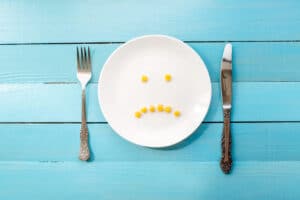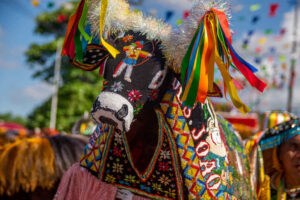The movement relies on food redistribution intelligence from the startup Connecting Food and the NGO Ação da Cidadania network
In one week of working together, more than 68.5 tons of surplus food have already been directed and donated to those who need it most
Currently, the world wastes ⅓ of the food it produces and, in Brazil alone, more than 100 million people don't know for sure whether they will eat 3 meals a day and more than 20 million go hungry. Given this alarming scenario, the iFood connected important points of the Brazilian food ecosystem to help combat waste, taking food to those who need it most, through the movement Everyone at the Table. The initiative relies on food redistribution intelligence from the social impact startup Connecting Food, a network from the NGO Ação da Cidadania and the participation of companies such as Nestlé, Grupo Carrefour Brasil and M. Dias Branco, as well as local retail chains, and has important objectives: combat food waste through the redistribution of surplus food, open discussions on how to expand the regulatory framework for donations, enhance food donation initiatives and invite more and more companies to participate in the project.
There are aesthetic standards for fruits and vegetables that cause many products to be wasted. Furthermore, there is a production surplus, that is, products from industries and markets that are within their expiration date and do not have enough time to reach the shelves. Together, these and other variables prevent good quality food from being sold. There is a potential for these products to be directed to a humanitarian food redistribution network and reach the tables of the socially vulnerable population in Brazil. In the middle of last year, the Law 14,016, which provides for the fight against food waste and the donation of surpluses, authorizes the donation of surplus food within its expiration date and within ideal conservation conditions suitable for human consumption.
With this in mind, iFood wants to do what it does best: connect and use technology and inovation to amplify and enhance food donation initiatives. “We want to encourage industries and retailers to donate surplus food products that have their properties intact and are out of date, thus benefiting thousands of people across Brazil”, says João Barreto, iFood's sustainability director.
At Todos à Mesa, Connecting Food, a Brazilian social impact startup, will be responsible for intelligence in the management and redistribution of food. Ação da Cidadania, an NGO active for over 30 years, will in turn integrate a network of NGOs in all states of Brazil. We invited large companies that already donate food with no commercial value, such as Nestlé, M. Dias Branco and Grupo Carrefour Brasil – a retailer that has been working to combat waste since 2009, through the Parceria que Alimenta program, which resulted in 3,000 tons of donations in 2020 – to join forces and thus expand their reach. The idea is for other companies to join the movement.
iFood will also sponsor a pilot to combat waste and donate surpluses with local retail chains, operated by Connecting Food. The operation consists of mapping NGOs around stores capable of receiving donations of food that has lost quality on the shelf but is within its expiration date. There will be 30 stores in this first stage of the project, fully sponsored in the first 6 months, one of which is Supermercado Castanha, in Vila dos Remédios, in São Paulo.
“During the first week of the Todos à Mesa movement, more than 68.5 tons of food were already donated. The proposal now is to use Connecting Food's food redistribution intelligence to continue connecting more and more donor companies so that, together, they can feed people in socially vulnerable situations by donating surpluses from industries, markets and restaurants, which are in excellent nutritional conditions, but which are wasted every day.” says Alcione Silva, founder and CEO of Connecting Food.
“The hunger situation in the country is tragic. And reducing food waste is a crucial part of the process of improving food security for the Brazilian people. We are very happy to be part of this great movement with iFood and partner companies”, says Rodrigo “Kiko” Afonso, executive director of Ação da Cidadania.
“The partnership is aligned with our circular economy strategy and the platform to combat food waste, which aims to avoid waste throughout the production chain with actions such as reusing and repackaging products, a discount program on perishables close to the date expiration date, offering fruits and vegetables that are not up to standard aesthetics with discounts, donations to people and animals, and composting”, assesses Marie Tarrisse, Sustainability Manager at Grupo Carrefour Brasil. “In 2020, we avoided the waste of more than 4,000 tons of products with these actions and, by 2025, our goal is to reduce waste in all our units by 50%”, he adds.
“Donating surplus food is a practice of M. Dias Branco that was expanded during the pandemic, when the population suffered most from food insecurity. Joining the Todos à Mesa movement is a way of connecting with other companies in this important social cause, as well as encouraging other companies to do the same. More than ever, it is time for unity”, says Tiago Timbó, Communications, Culture and Sustainability manager at M. Dias Branco.
To find out more and/or participate in the movement, simply contact us via todosamesa@ifood.com.br.
About Citizenship Action
Ação da Cidadania was founded in 1993 by sociologist Herbert de Souza, known as Betinho, with the aim of combating hunger and socioeconomic inequality in our country and helping the more than 32 million Brazilians living below the poverty line that year. Since its creation, the NGO has started a series of initiatives, with Christmas Without Hunger being the most famous of them. After ten years without being carried out, the campaign returned in 2017 and, in 2020, gained full force to help the now tens of millions of Brazilians who live below the poverty line, according to data from the Federal Government's Single Registry.


